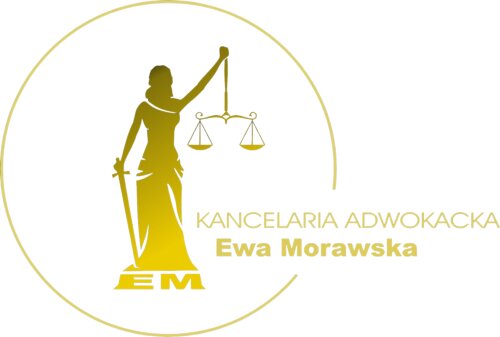Best Elder Law Lawyers in Warsaw
Share your needs with us, get contacted by law firms.
Free. Takes 2 min.
List of the best lawyers in Warsaw, Poland
About Elder Law Law in Warsaw, Poland:
Elder Law in Warsaw, Poland focuses on legal matters that specifically affect aging adults. It encompasses a wide range of issues such as estate planning, wills and trusts, long-term care planning, guardianship, and healthcare decision-making. The purpose of Elder Law is to protect the rights and well-being of older individuals, ensuring they receive the care they need and preserving their assets.
Why You May Need a Lawyer:
There are several common situations where consulting a lawyer specializing in Elder Law can be beneficial. These may include:
- Creating a comprehensive estate plan to ensure your assets are distributed according to your wishes.
- Understanding the eligibility requirements and applying for government benefits such as Medicare, Medicaid, or veteran's benefits.
- Making decisions regarding long-term care options such as assisted living or nursing homes.
- Appointing a guardian or power of attorney to make medical or financial decisions on your behalf.
- Protecting your rights and advocating for yourself or a loved one in cases of neglect, abuse, or exploitation.
Local Laws Overview:
When dealing with Elder Law matters in Warsaw, Poland, it is important to be aware of the following key aspects of local laws:
- The Act on Social Assistance provides support for individuals who are unable to provide for themselves, including elderly persons.
- The Act on the Protection of Personal Data ensures the privacy and confidentiality of personal and medical information.
- The Family and Guardianship Code addresses matters related to guardianship, care, and representation of individuals who are incapacitated or require assistance.
- The Act on the Concession of Social Assistance in Accommodation Establishments regulates the rights and obligations of residents and operators of assisted living facilities.
Frequently Asked Questions:
1. What is the difference between a living will and a power of attorney?
A living will is a legal document that outlines your preferences for medical treatment in case you become incapacitated and unable to communicate. A power of attorney, on the other hand, grants another person the authority to make decisions on your behalf, including healthcare and financial matters, while you are still alive.
2. How can I protect my assets and still qualify for government benefits?
Asset protection requires careful planning. Consulting an Elder Law attorney can help you navigate the complex rules and regulations, such as establishing trusts or transferring assets while still meeting eligibility requirements for government benefits.
3. What are the signs of elder abuse or neglect?
Signs of elder abuse or neglect may include unexplained injuries, sudden changes in behavior, withdrawal from social activities, poor hygiene, malnutrition, or financial exploitation. If you suspect elder abuse, it is important to report it to the appropriate authorities.
4. How can I choose the right nursing home or assisted living facility?
Choosing the right long-term care facility involves researching and visiting potential options. Consider factors such as the quality of care, staff-to-resident ratio, cleanliness, safety measures, social activities, and cost. It is also advisable to review inspection reports and seek recommendations from trusted individuals or resources.
5. Can I contest a will if I believe it is invalid?
If you believe a will is invalid due to undue influence, lack of capacity, fraud, or any other reason, you can contest it in court. However, contesting a will can be a complex process, and it is advisable to seek legal representation to navigate the legal requirements and potential challenges.
Additional Resources:
For further information and assistance related to Elder Law in Warsaw, Poland, you may find the following resources helpful:
- Polish Association of Gerontology and Geriatrics: http://gerontologia.com.pl/
- Warsaw Citizens' Rights Office: http://bgor.waw.pl/
- Ministry of Family, Labor, and Social Policy: https://www.gov.pl/web/family-labour-and-social-policy
Next Steps:
If you require legal assistance regarding Elder Law matters in Warsaw, Poland, consider taking the following steps:
- Research and shortlist Elder Law attorneys who specialize in the specific area of concern.
- Contact potential lawyers to inquire about their experience, fees, and availability.
- Schedule consultations with a few attorneys to discuss your situation and get a sense of their approach and expertise.
- Select a lawyer who understands your needs and has a track record of success in handling similar cases.
- Work closely with your chosen lawyer to provide all necessary information and documents, and follow their guidance throughout the legal process.
Lawzana helps you find the best lawyers and law firms in Warsaw through a curated and pre-screened list of qualified legal professionals. Our platform offers rankings and detailed profiles of attorneys and law firms, allowing you to compare based on practice areas, including Elder Law, experience, and client feedback.
Each profile includes a description of the firm's areas of practice, client reviews, team members and partners, year of establishment, spoken languages, office locations, contact information, social media presence, and any published articles or resources. Most firms on our platform speak English and are experienced in both local and international legal matters.
Get a quote from top-rated law firms in Warsaw, Poland — quickly, securely, and without unnecessary hassle.
Disclaimer:
The information provided on this page is for general informational purposes only and does not constitute legal advice. While we strive to ensure the accuracy and relevance of the content, legal information may change over time, and interpretations of the law can vary. You should always consult with a qualified legal professional for advice specific to your situation.
We disclaim all liability for actions taken or not taken based on the content of this page. If you believe any information is incorrect or outdated, please contact us, and we will review and update it where appropriate.
















